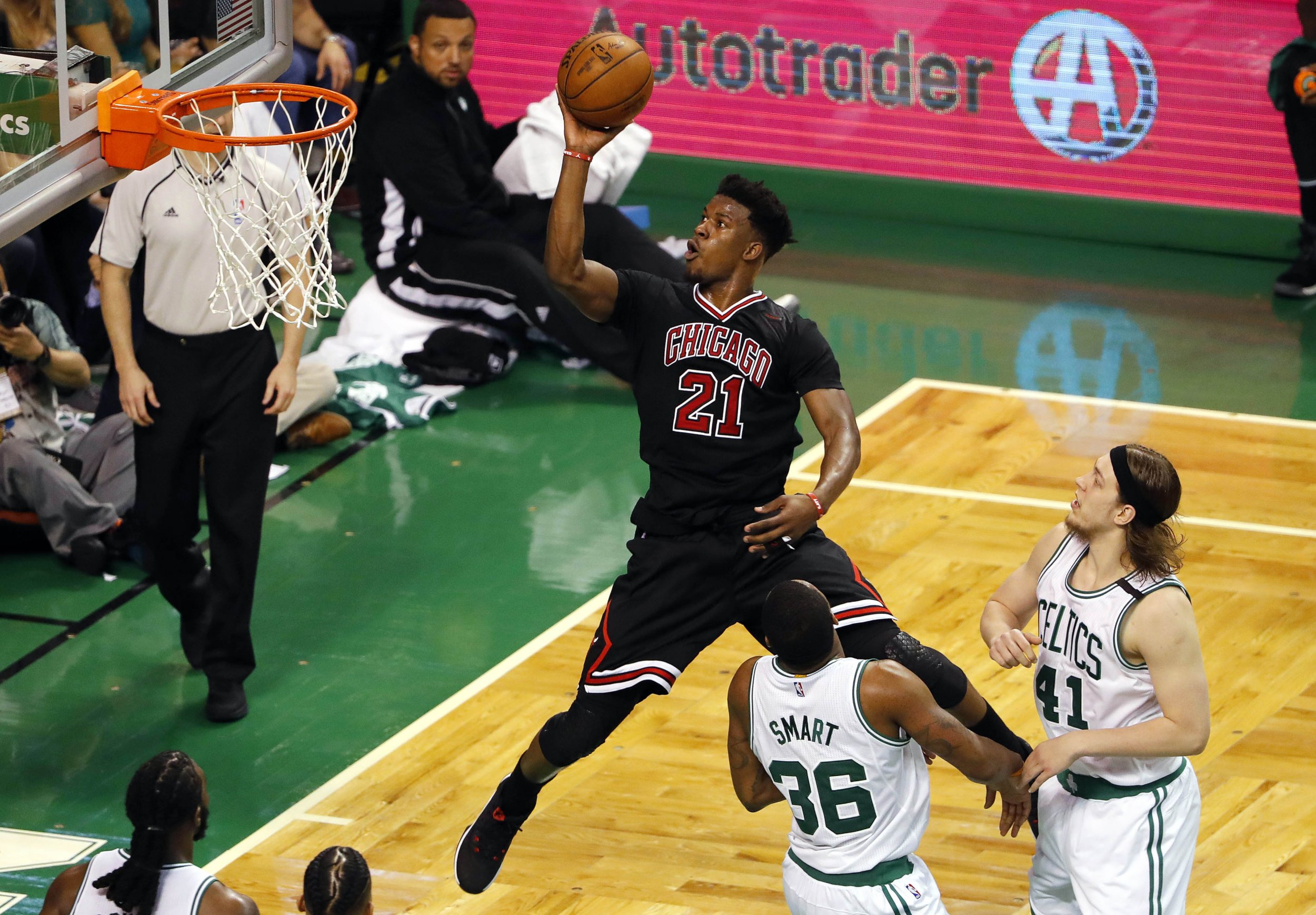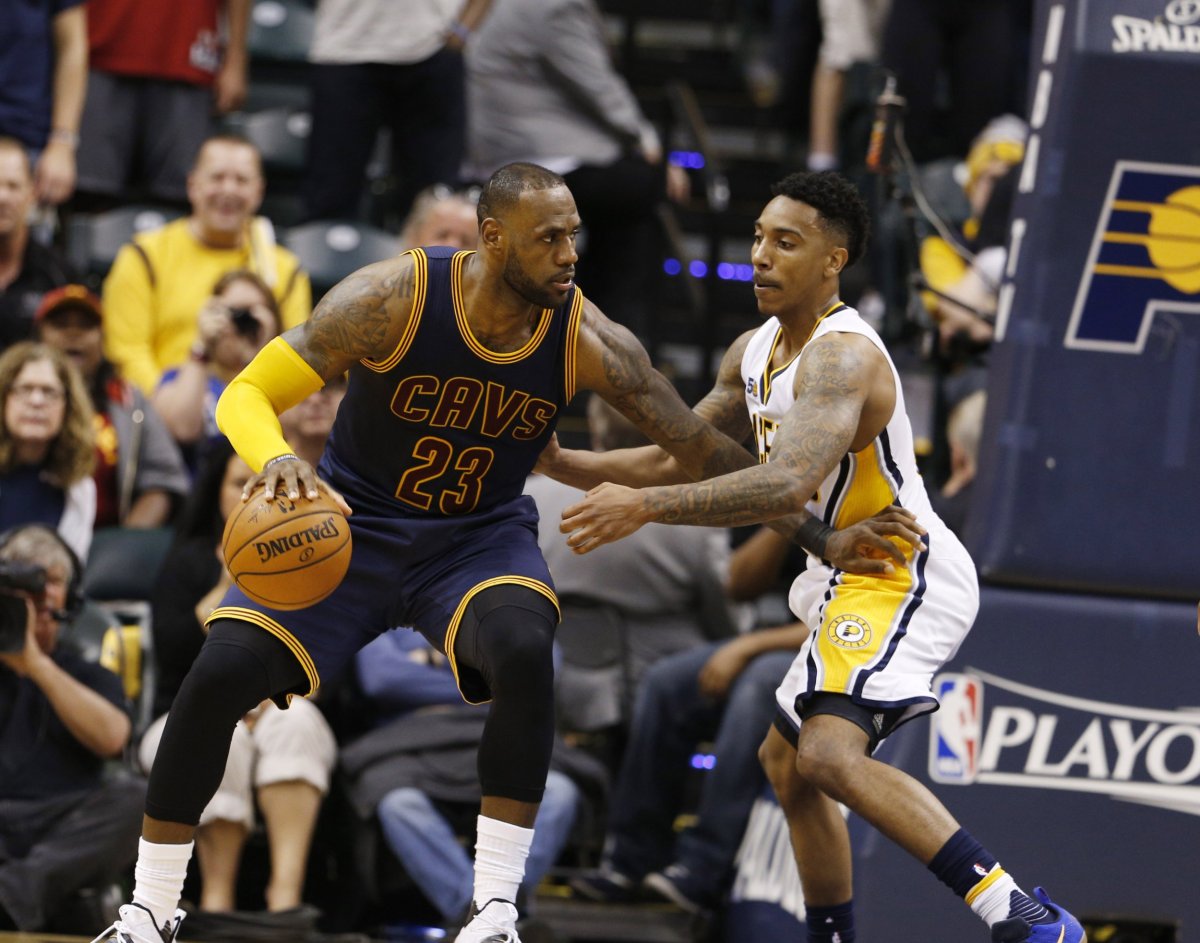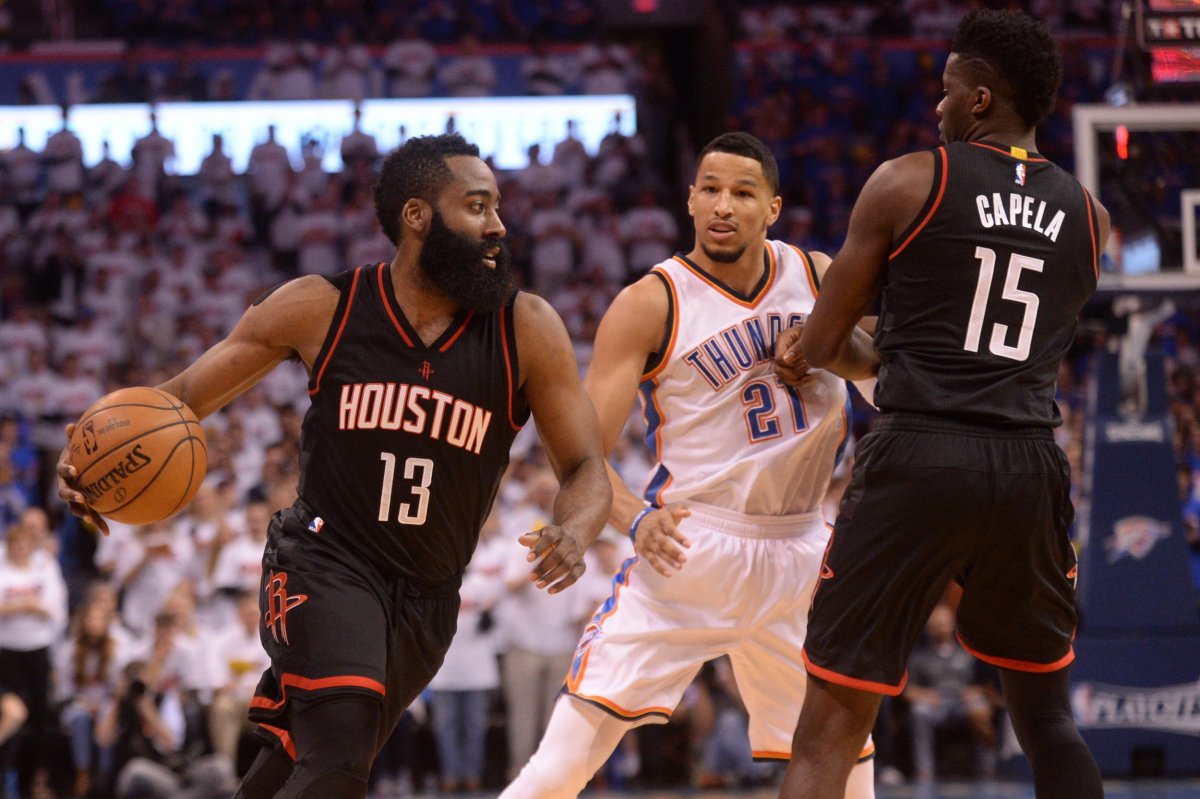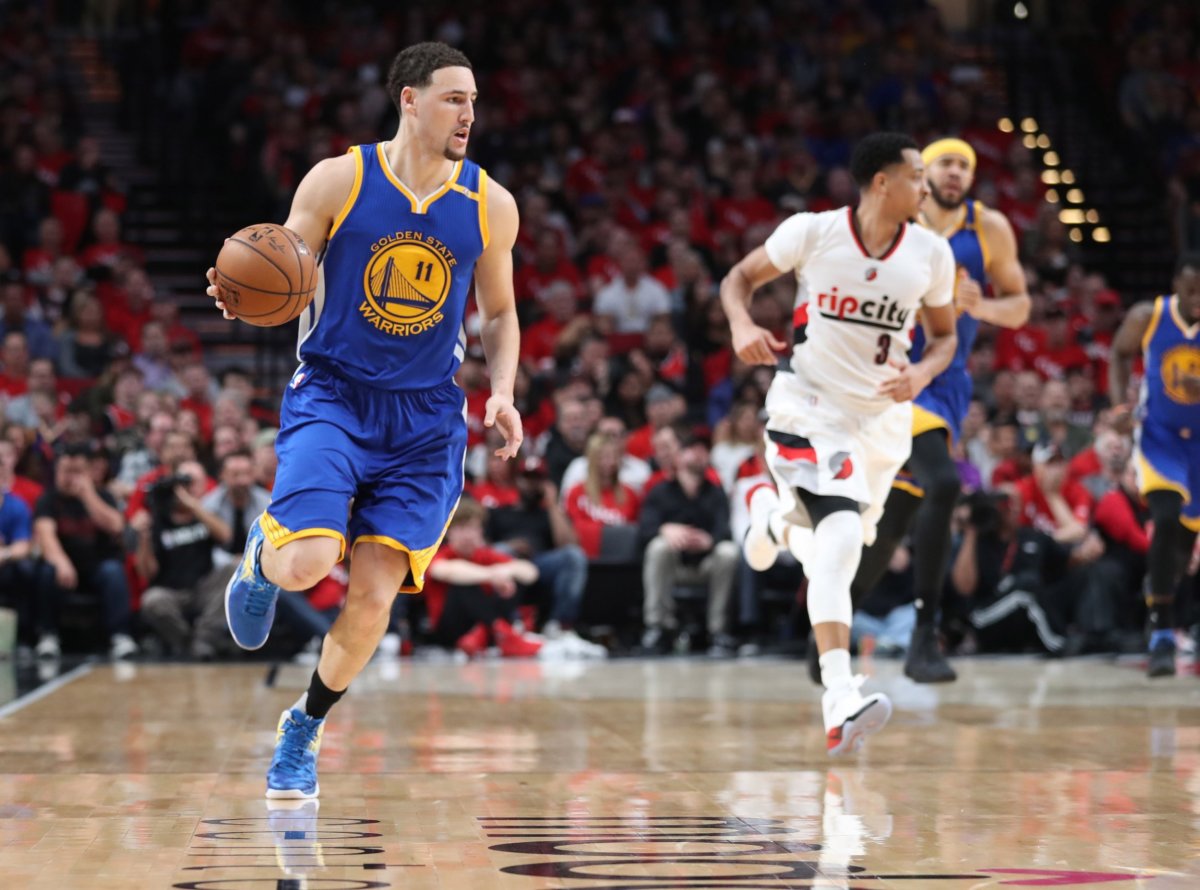
The NBA postseason is only one week old and has already provided a bounty of drama, from the San Antonio Spurs' Kawhi Leonard's virtuoso performance in a Game 4 overtime loss to the Memphis Grizzlies to the Cleveland Cavaliers' resurrection from a 26-point deficit to win Game 3 against the Indiana Pacers. The playoffs are a nine-week odyssey that opens with charismatic leading men such as LeBron James, Russell Westbrook and the Milwaukee Bucks' typographical terror, Giannis Antetokounmpo. All it lacks, year in and year out, is the element of surprise.
Cinderella doesn't dance in the NBA playoffs. She never even gets out of the house and into the ball. In dramatic lore, the fairy godmother bestowed glass slippers upon our unlikely heroine. In the NBA's second season, Commissioner Adam Silver imposes upon Cinderella a glass ceiling.
In the past half-century, only twice has a squad from the lower half of the playoff bracket won the NBA Finals. Only twice more has a lower-seeded franchise even advanced that far, the last time being in 1976 (the 1999 New York Knicks, an eight-seed, did, but this was after a lockout-abbreviated 50-game schedule). College basketball promises March Madness; pro basketball offers Spring Status Quo.
Since 2003, when the league moved to a best-of-seven format in the first round (as well as for the three subsequent rounds), no team in the lower half of either conference's eight-team bracket has even advanced to the finals in June. The last time either team was among the top-two finishers in its respective conference was 1978, when the third-seeded Washington Bullets defeated the fourth-seeded Seattle Supersonics. Spring uprisings are common in the NBA playoffs—eighth-seeded Memphis took down top-seeded San Antonio in 2011—but they are almost always suppressed before the rebels reach the palace gates.

The reason, as almost anyone who participated in last weekend's March for Science is able to tell you, is sample size. The more repetitions of the same experiment that you conduct, the truer the results. Did the Pacers, who were swept in four games by the Cavaliers, come within one shot of winning two games and hold a 26-point lead in a third? Yes, but LeBron's teams—Cleveland and previously Miami—have won 21 consecutive first-round games. This is merely a sound check for the King.
The 1967 postseason had three rounds: a best-of-five series followed by a pair of best of sevens. Granted, eight clubs, or 80 percent of the 10-franchise league, made the playoffs. The 2017 NBA postseason is open to 16 teams (approximately 53 percent of the NBA) and features four best-of-seven series. It's difficult enough to defeat a superior team four times inside a fortnight, but to repeat the feat as many as three more times? The NBA's unofficial postseason mantra is, "Fool me once, shame on me; fool me twice, and then a third and a fourth time, and our coach just got fired."
Is there anything wrong with the better team advancing in the playoffs? Absolutely not, but there's not much about it that's particularly dramatic. The NBA playoffs are the truest validation of a regular season in sport because of, as previously noted, their adherence to the scientific method. They just don't lend themselves to genuine underdog stories, such as the Miracle Mets of 1969 or the eighth-seeded Villanova Wildcats of 1985, or the average Joe from the movie DodgeBall, whose subtitle is A True Underdog Story.

With the lone exception of the 1995 Houston Rockets, a six seed that won it all, there are no true underdog stories in the postseason NBA. Sixteen times in the past 50 seasons—nearly one in every three years—the NBA Finals have pitted the number-one team from each conference. In 27 of the past 50 years, the finals have pitted no worse than the second-best team from each conference.
Related Content: Al McCoy Is NBA's Longest-Tenured Broadcaster
While no lower-seeded (nine through 16) NCAA tournament squad has ever cut down the nets since seeding began in 1979, 10 schools seeded lower than fourth have advanced to the championship game. Four of those 10 emerged victorious on the first Monday evening in April: the sixth-seeded North Carolina State Wolfpack in 1983, Villanova in '85, sixth-seeded Kansas in '88 (nicknamed "Danny [Manning] and the Miracles") and seventh-seeded Connecticut in '14, which defeated eighth-seeded Kentucky. Such unlikely runs require a squad to win six games in a row against six opponents who will never have a chance to make Game 2 adjustments. The NBA is not rigged that way.
The NBA postseason began on April 15 and it may end as late as June 18. That's a 64-day run, or the gestation period of a wolf—if not the Timberwolves, who have managed to miss the playoffs for 13 consecutive seasons. It is a two-month slog during which coaching staffs adjust quickly to whatever unforeseen turbulence occurs. When Villanova shocked Georgetown 66-64, the Wildcats' fifth-best starter, Harold Jensen, shot five-for-five from the field and finished with 14 points, more than treble his average. Had the Hoyas and Wildcats played a best of three, Jensen would likely have been wearing Georgetown's David Wingate as a straitjacket the next two games.
Cinderella is still able to sit next to the fireplace and dream in the NBA. The 1976 Phoenix Suns, the third-seed in a four-team Western Conference field, took the Boston Celtics to six games in the NBA Finals. Their serendipitous run included one of the most memorable games in league history, the triple-overtime Game 5 loss to the Celtics in Boston Garden. The 1981 Houston Rockets, a six-seed in the Western Conference, are mostly remembered not so much for losing to the Celtics in the Finals, but for knocking out Magic Johnson and the Los Angeles Lakers in the first round. That, however, was a best-of-three series.

The '95 Rockets remain the unicorn frappuccino of NBA postseason lore, the lone team seeded in the lower half of the bracket to win it all. One must remember that they were able to avoid Michael Jordan and the Chicago Bulls in the NBA Finals. Also, those Rockets were the NBA's defending champions with future Hall of Famers Clyde Drexler and Hakeem Olajuwon (it was sweet redemption for the two best players from a University of Houston team that a dozen years earlier had lost to the ultimate Cinderella of March Madness, Jim Valvano's North Carolina State). They were not so much underdogs as they were a team of bored veterans, who sleepwalked through the post All-Star break stretch with a 17-18 record.
These NBA playoffs will feature a surfeit of superstars, from Stephen Curry to James Harden to LeBron James to Kawhi Leonard to Russell Westbrook. There will be a new household name or two if only fans can pronounce them, e.g. Antetokounmpo. They may even feature an eight seed taking down a one seed, as the Chicago Bulls took the first two games in Boston from the top-seeded Celtics.
Come June, though, for the sixth year in a row, you will be seeing, barring injury, no worse than the second-best team from either conference in the finals. Come what may come May, in June it's going to be the number-two seed Cleveland Cavaliers facing the Golden State Warriors or the San Antonio Spurs. Cinderella will be home scrubbing floors, wistful that she missed the ball again, but thankful that she's not the New York Knicks.
Uncommon Knowledge
Newsweek is committed to challenging conventional wisdom and finding connections in the search for common ground.
Newsweek is committed to challenging conventional wisdom and finding connections in the search for common ground.
About the writer
John Walters is a writer and author, primarily of sports. He worked at Sports Illustrated for 15 years, and also ... Read more
To read how Newsweek uses AI as a newsroom tool, Click here.








